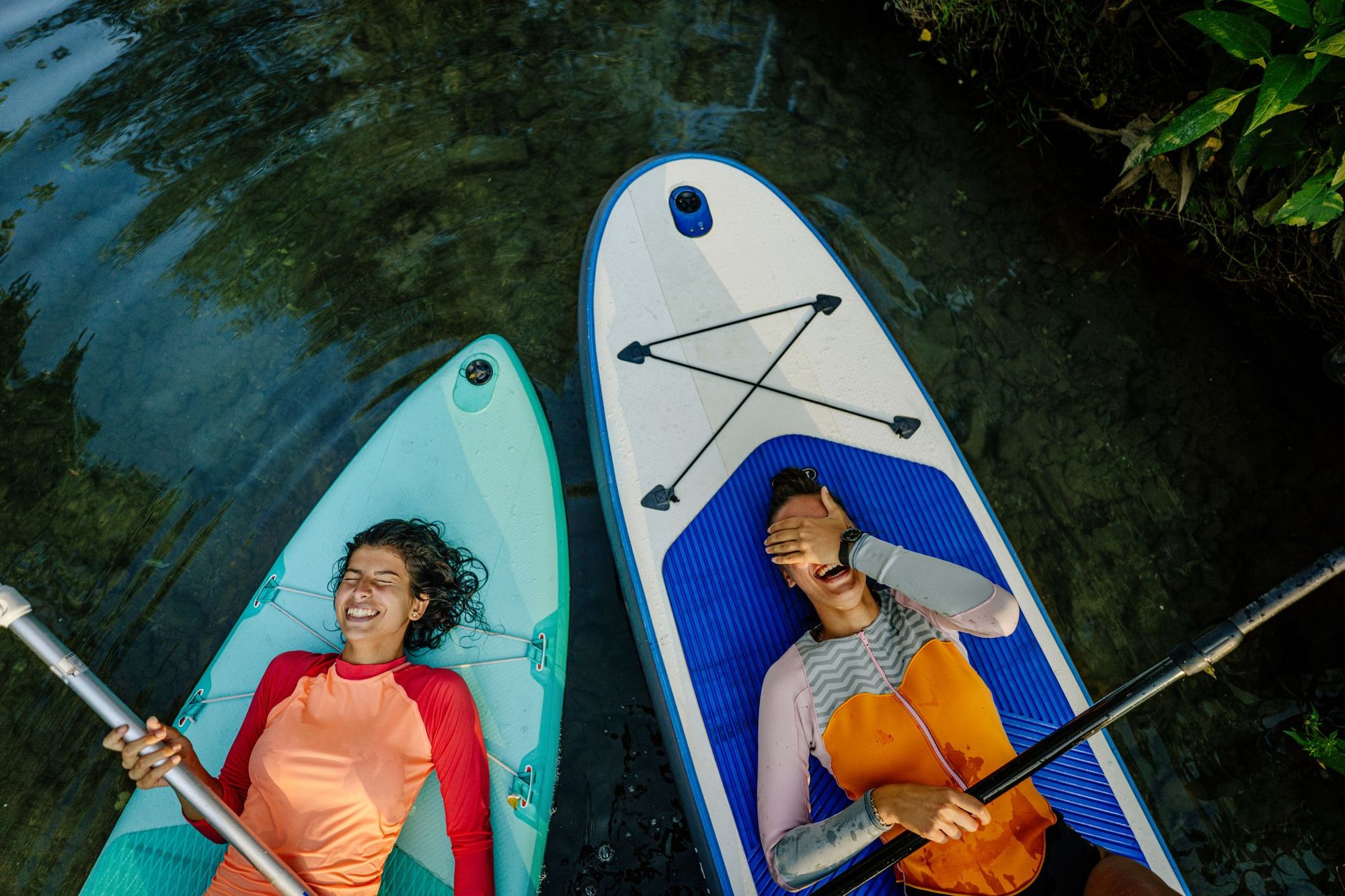There’s a particular feeling shared by anyone who bleeds: that sinking sensation when you realise your period is going to arrive in the middle of an adventure. You wonder how you’re going to cope on that wild camping trip, or how your triathlon time will be affected.
Even just a decade ago, women in the travel and sports industries never talked publicly about their periods. But brave athletes such as swimmer Fu Yuanhui and tennis player Heather Watson began speaking out about menstrual cramps impacting their performance.
“Over the past couple of years there’s been a real attempt to destigmatise periods. When I first started interviewing women, it wasn’t something that was talked about at all,” explains Sarah Williams, founder of Tough Girl podcast.
But there are still some parts of the world where this is not the case. Swimmer, dive master and Bloody Good Period Ambassador Nahla Mahmoud - who was born in the UAE and grew up in Sudan - says periods are still highly stigmatised in the Middle East. Furthermore, in her mother tongue of Arabic, there often aren’t the words to express the experience of periods.
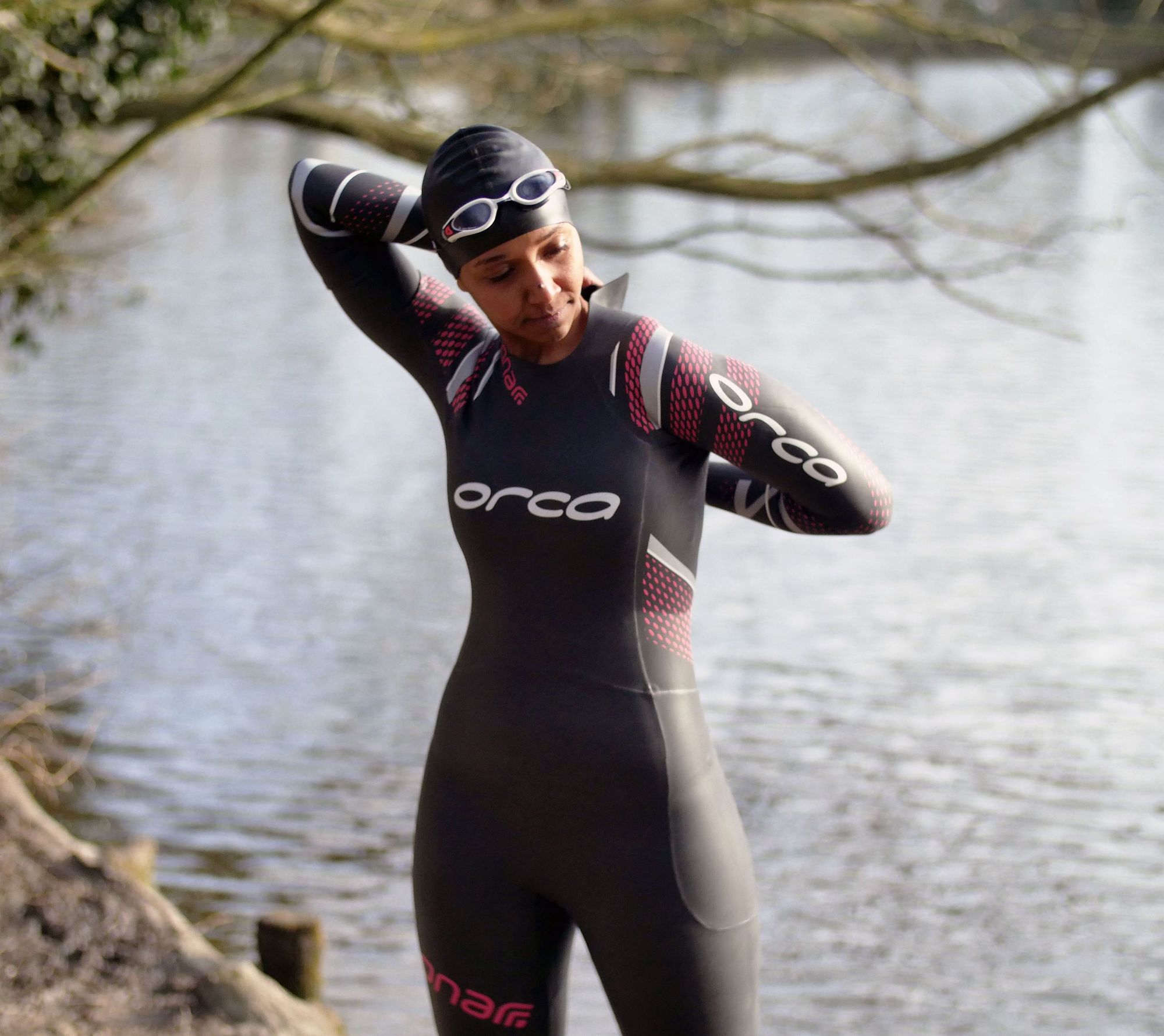
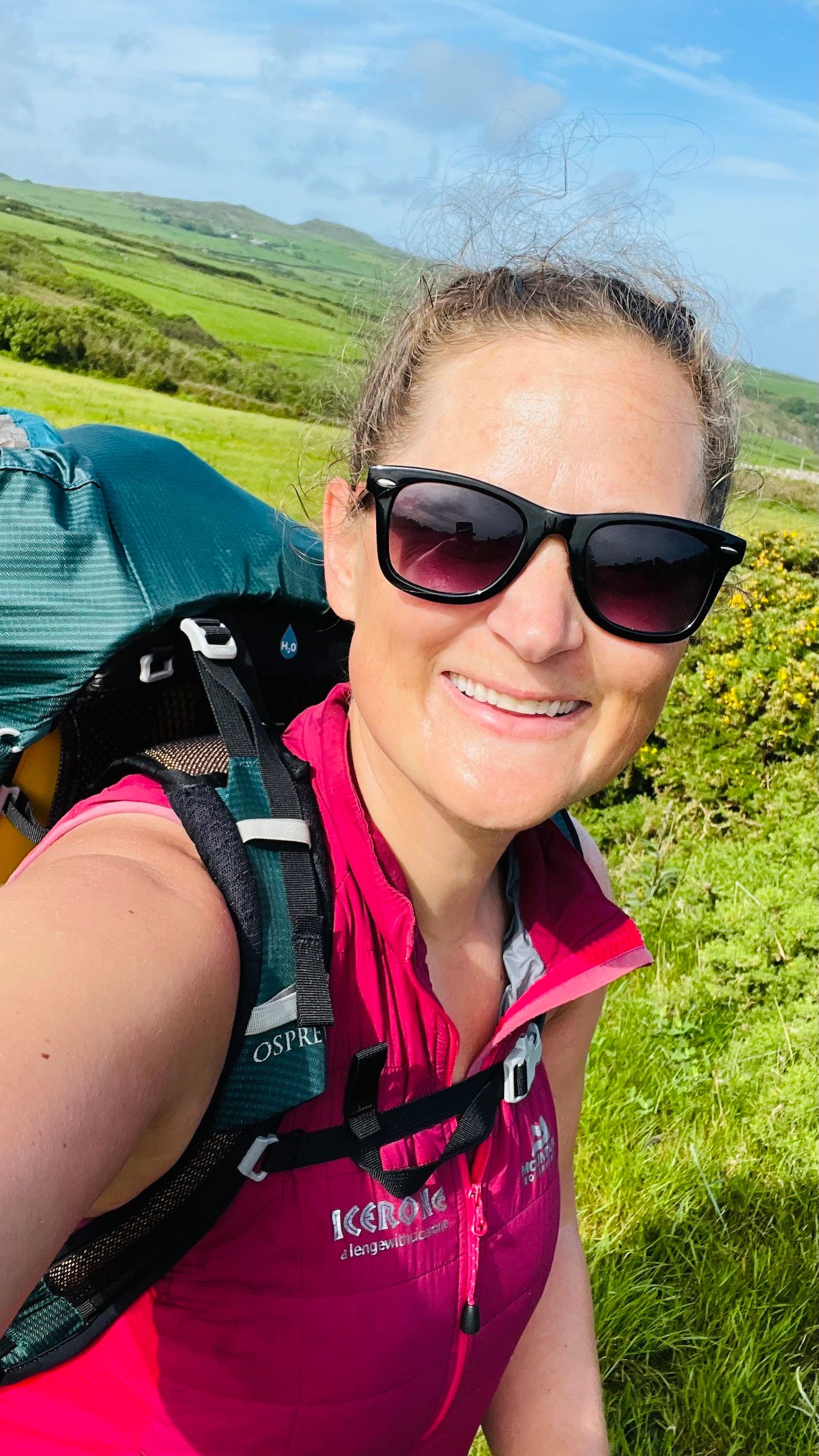
Nahla Mahmoud, left, and Sarah Williams, right. Photos: Nahla Mahmoud & Sarah Williams.
“In English the terms have been fought for and formed by generations before us," she says. "Whereas in Arabic, we're still in that process. You either have to use insulting or taboo words or else a lot of descriptive language to describe genitalia, for example."
We spoke to Sarah Williams, Nahla Mahmoud and long-distance swimmer Beth French about how they manage their periods. This feature covers everything from experiences of different sanitary products to tracking your cycle and embracing a period-positive mindset.
Of course, not all women bleed, and not everyone who bleeds is a woman. However you identify, if you receive visits from ‘Aunt Flo’, then this guide is for you. Men are welcome, too. Managing periods is a conversation for us all to have together.
How to Manage Period Pains While Travelling

Bleeding is not the only symptom associated with menstruation - there’s also period pains (primary dysmenorrhea, to use scientific terminology), which can be debilitating for some women. While Sarah has a light, three-day cycle with little pain, Nahla and Beth suffer more.
“My period is five days. For the first two days I'm usually very unwell, to the level where I have to take time off work. I get fevers, shivers, and cramps, back pain, aches. It's not very pleasant, ” Nahla explains.
“I have hormonal imbalances which mean that I have been diagnosed with endometriosis, chronic pelvic inflammatory disease and polycystic ovary syndrome. This means that my periods can be quite heavy and also very painful - my body gets very inflamed when I’m both menstrual and premenstrual. My periods make me feel like I’ve been beaten up each month,” Beth says.
Beth takes anti-inflammatory medications to manage her pain - Ibuprofen is a popular over-the-counter choice with women. Speak to your GP if you'd like help managing period pains with medicine.
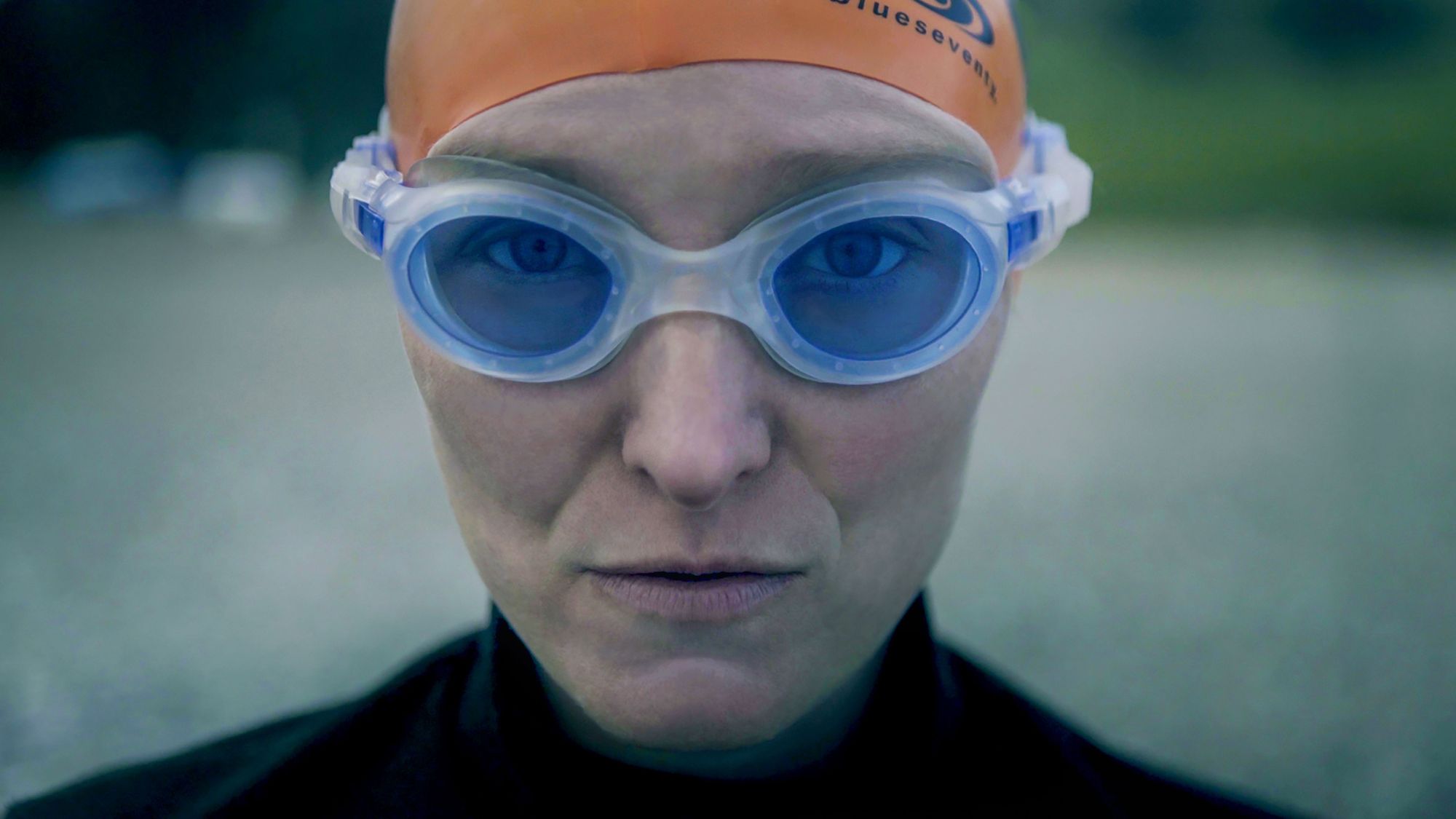
Localised heat is one of the most effective non-medical interventions. While you might not have a hot water bottle or warm bath close to hand when out adventuring, we’ve found that adhesive heating pads work wonders.
Furthermore, many scientific studies have shown that women who exercise regularly often have less painful periods - walking, cycling and swimming help improve blood flow, reduce pain, and relieve pressure on pelvic organs.
“Regular exercise does make your periods much lighter," Beth confirms. "When I was at my physical peak and doing regular channel swims, they were much more manageable."
Nahla adds: "Every month, on the third day of my period, I go for a swim. Walking, swimming and diving work your lower belly muscles - it's a little bit of a massage and helps ease the pain. Now it's something I look forward to.”
The Benefits of Tracking Your Menstrual Cycle
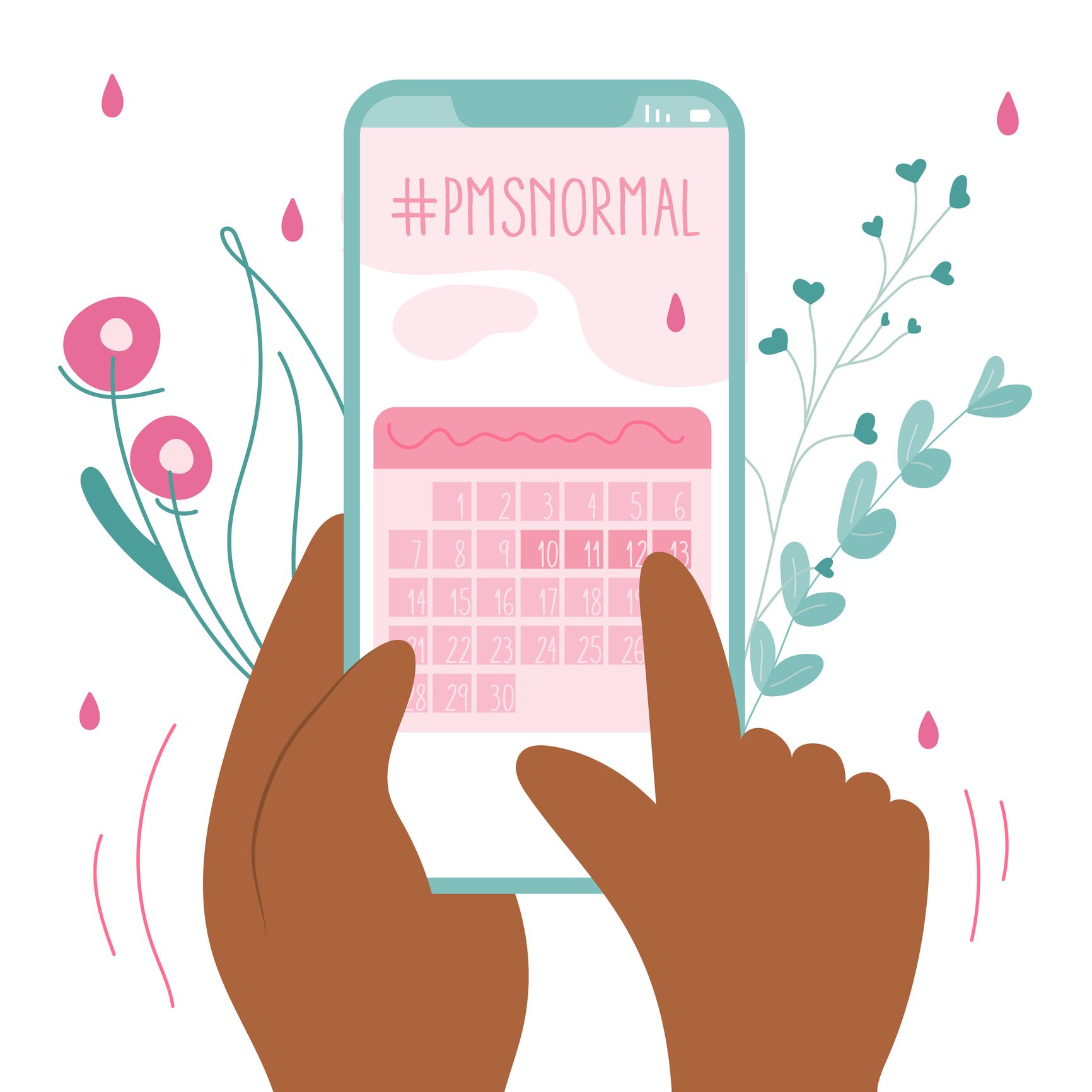
Since speaking to Dr Stacy Sims, an expert on female physiology, Sarah has been tracking her period using an App called Clue. One benefit of tracking your cycle is that you are less likely to be caught out while on an adventure. But Sarah also finds it beneficial in understanding her energy levels.
Dr Stacy Sims "has a lot of advice about basing your training around the stages of your menstrual cycle that I find really useful," Sarah explains. "Like in the first half of your cycle, the low hormone phase, you can exercise as hard as you like. During the high hormone phase women have a higher core temperature and need longer recovery periods - it’s important to plan this into your training.
“I woke up this morning feeling really fatigued, and didn’t get on the road until about ten thirty in the morning. I was confused as to why, as I was well fed and well-rested, but then I realised it was because I’d just finished my period. At that point, your iron levels are much lower. When you’re feeling like that, it’s important just to be kind to yourself,” she adds.
What Period Products to Use
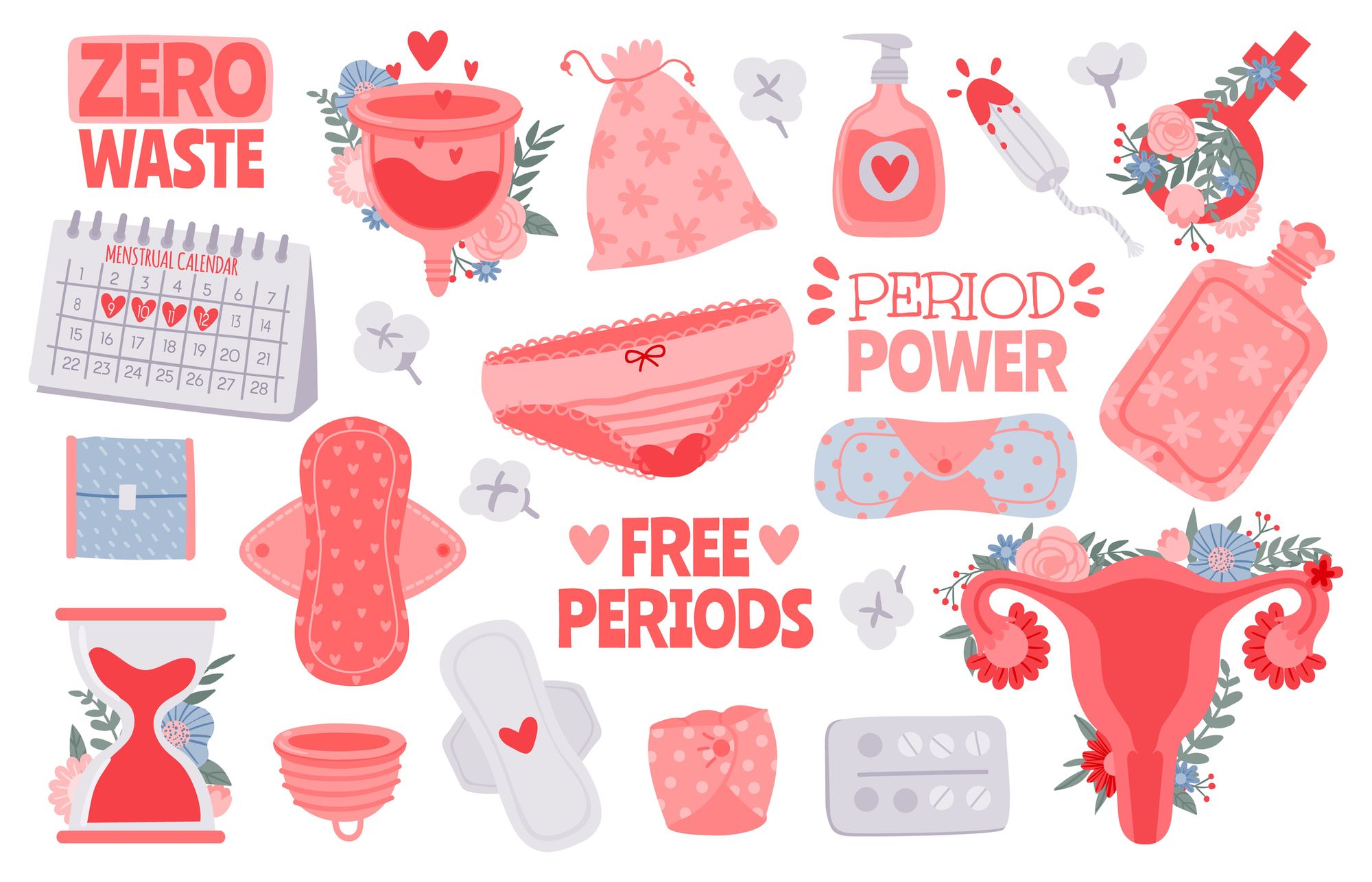
Each woman we spoke to manages their period differently, and uses different sanitary products. Nahla grew up with pads, but has been using the menstrual cup since 2015.
“I love it, love it, love it," she says. "It changed my whole experience. The pain is still there, but the logistical side has completely changed. There was a lot of psychological and emotional discomfort associated with managing the pads in Sudan. They were perfumed and irritated me, and there was so much I wasn’t able to do. But this is just a tiny little cup that you just insert, take out, empty, rinse and put back.
“It changes my activities - I have more room to do whatever I want. With the cup, the periods become associated with more positive experiences. From the third day, I am able to exercise.”
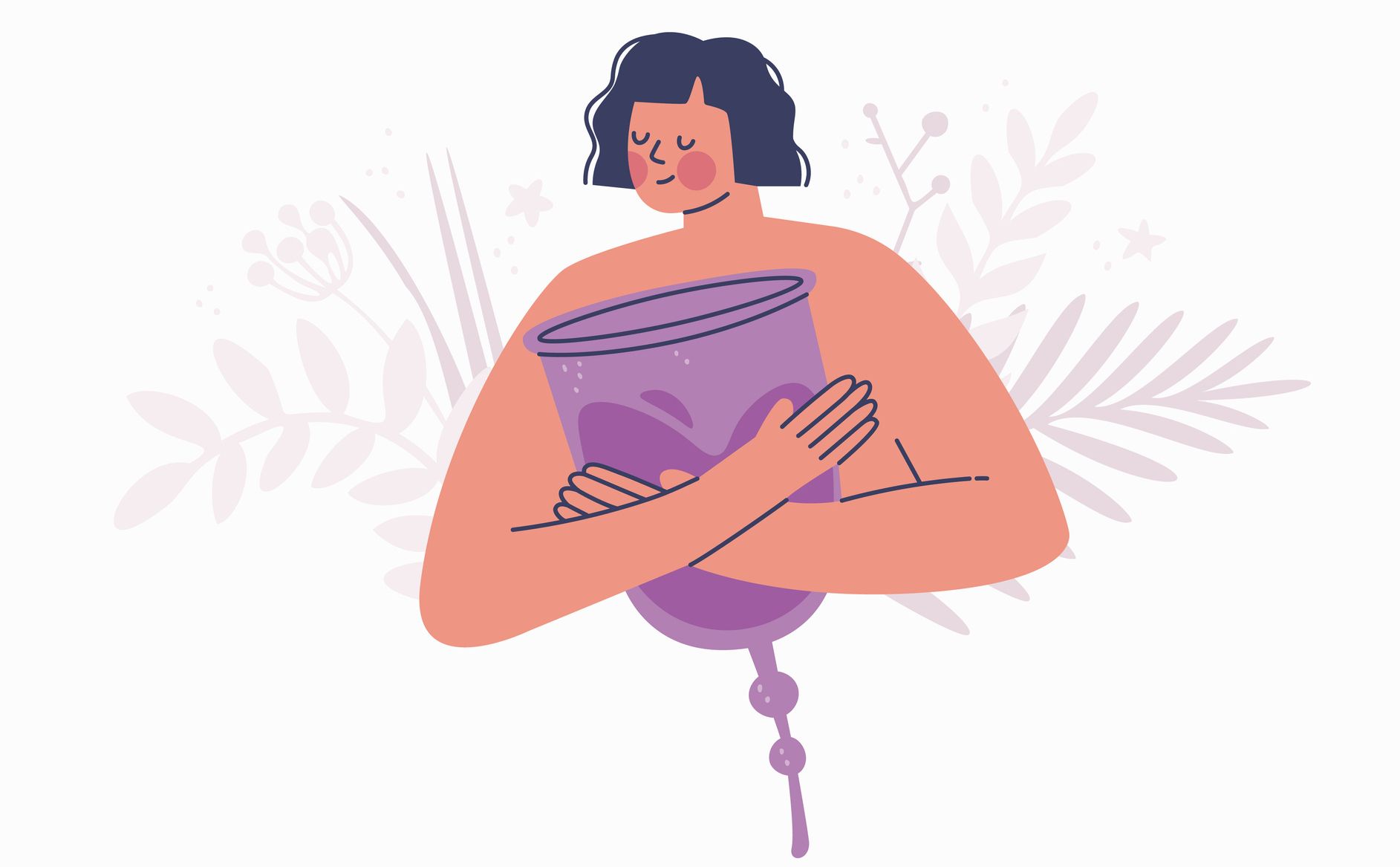
Sarah, however, isn’t as keen.
“I tried using a mooncup while I was walking the Appalachian Trail, and it really didn’t work for me. The hygiene aspect was really difficult - I travel stoveless, so I didn’t really have a way to boil or clean it. I find it inconvenient having to clean it even when using public toilets - you have to come out of the cubicle if you want to wash it out. Instead, I use tampons on expeditions. You just clean your hands and pop it in. Keep the waste and dispose of it later.”
What works for one woman doesn’t work for another. We’d recommend experimenting with different sanitary products until you find what you like best; your experience might contrast with ours.
A Menstrual Cup
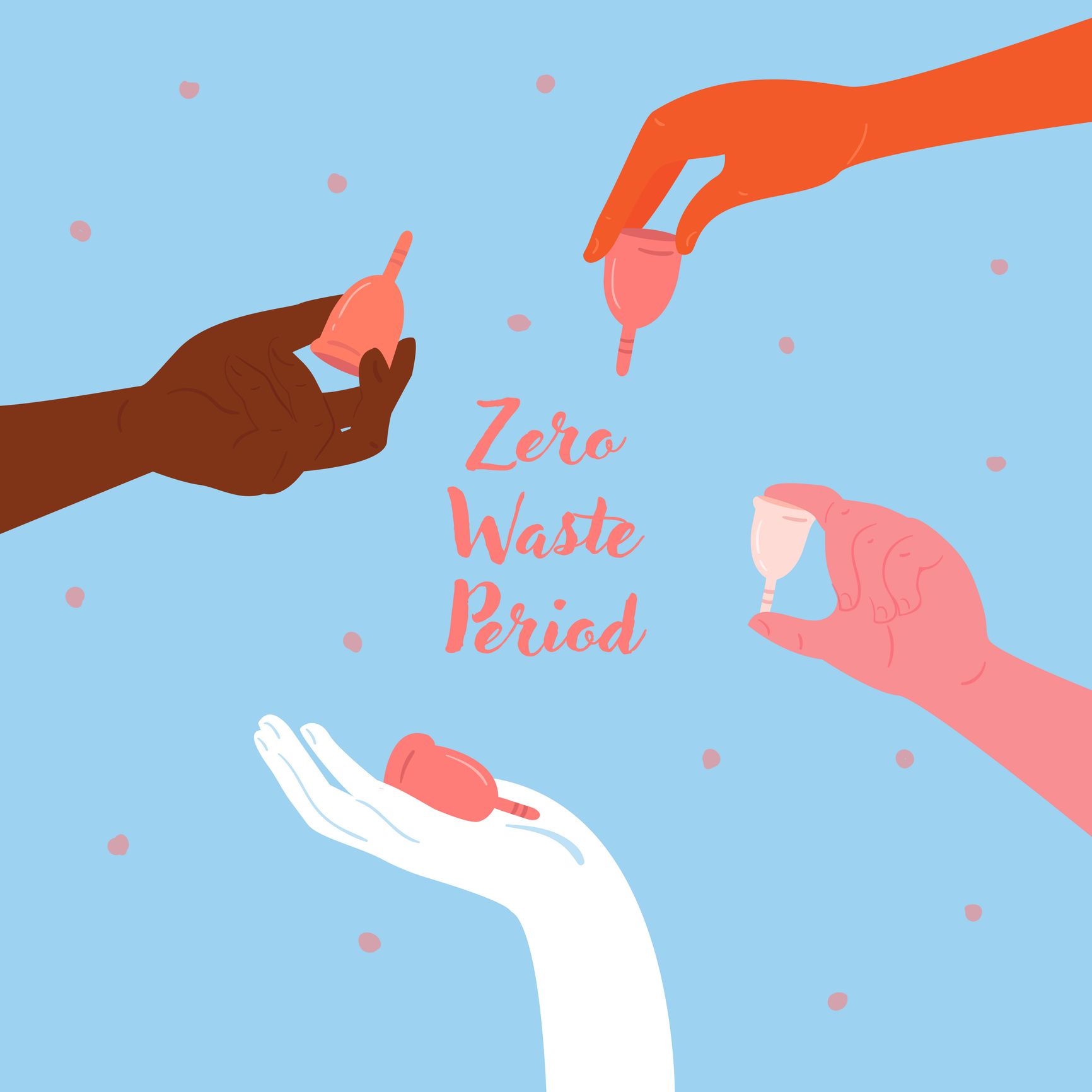
Like Nahla, we are advocates of the menstrual cup. As it’s reusable, it helps you reduce waste, and it’s highly cost-effective. It’s also light and portable, making it an ideal product to carry on a multi-day hike. We have used it while out cycling, hiking and swimming for years with no problem at all. However, there is one (messy) downside - insertion and removal.
It changes my activities - I have more room to do whatever I want. With the cup, the periods become associated with more positive experiences
It’ll take you a few periods to become accustomed to folding and inserting a menstrual cup. More difficult to manage is cleaning it after removal, especially when you’re camping outside. Take a bottle of drinking water with you to rinse it out, and make sure you clean your hands too. There are also special menstrual cup wipes you can use for cleaning out your cup, some of which are biodegradable and compostable.
Period Pants (and Other Period Activewear)
All sorts of period pants and activewear have become available, from sports leggings to bikinis. We’ll readily admit that we were sceptical, imagining them as wet, bulky and prone to leaks. As it turns out, we were completely wrong - period pants are a revelation!
We tried two products from Modibodi - their active briefs (developed in conjunction with Puma) and recycled running shorts. Both have a gusset that absorbs blood and then moisture wicks it away from the body - essentially, it’s always dry. We tested them on a run, a day hike and at a badminton game, and experienced zero leaks. Best of all, there’s no menstrual waste to dispose of. If there is a downside, then it’d be cost. A bundle of seven Modibodi Activewear pants costs £150. However, if you consider the monthly costs of single-use products, then they’re actually more affordable than pads and tampons in the longterm.
Tampons
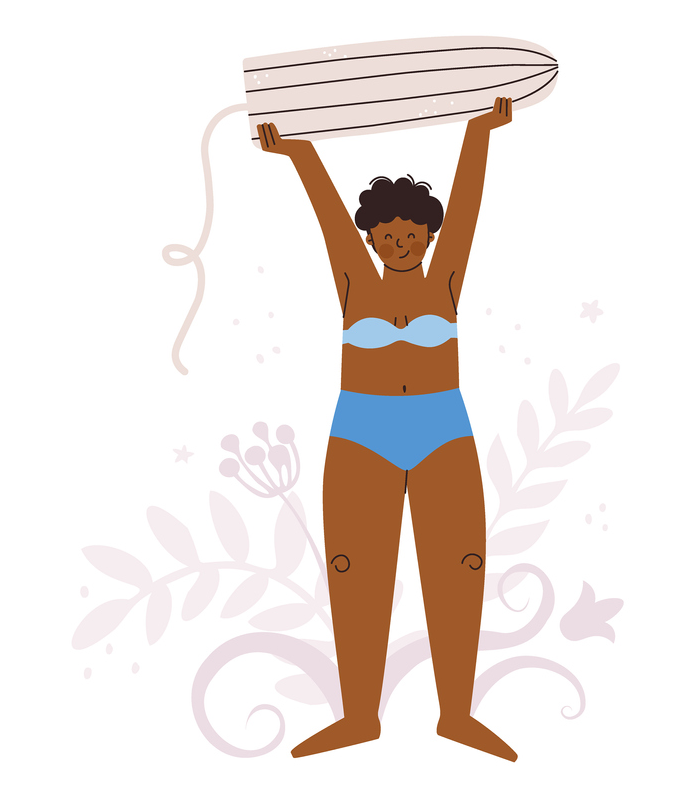
One of the most popular period products on the market, there’s plenty to like about tampons. They’re easy to insert, and can be changed much more easily than the cup. They also work well with land-based activities, and on light swims. The cons: having to pay out money every month makes them more expensive than reusable sanitary products, and they also create waste. We’ve also found, over the past couple of years, that the popular brands irritate us down there.
However, we recently tried Hey Girl’s 100% organic cotton tampons, which we found much more comfortable (probably because they’re bleach- and toxin-free). The Hey Girl tampons are wrapped in biodegradable material and have applicators made of sugar cane, making them plastic-free. Another thing in Hey Girl’s favour is that it matches each order with an equivalent donation to someone in the UK experiencing period poverty.
Sanitary Pads
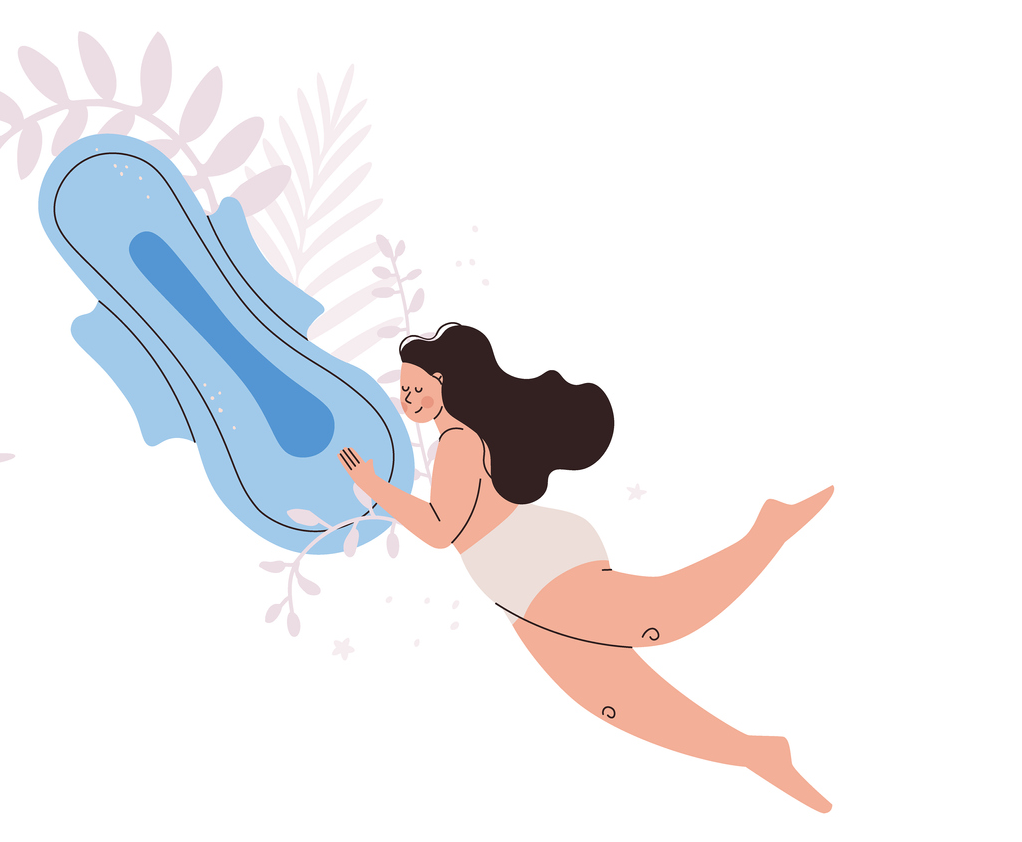
We haven’t worn pads since our early teens, back when they were highly perfumed and made you feel like you were wearing a nappy. They aren’t ideal for sports, and you can’t enter the water while wearing them. However, we decided to put our prejudices aside in the name of research. So we tried Hey Girl’s Full Cycle Kit, which consists of 5 reusable pads of different absorbencies.
They use a similar moisture wicking technology to the period pants, and are much cheaper (around £40); they’re also much more comfortable than single-use pads. We also like the zero-waste aspect of them; you can just roll them up and store for washing later. While they stayed in position for a short cycle ride, we don’t think they’d hold up as well for more intense exercise - and of course, you can’t enter the water with them. However, they’d be perfect for a weekend camping trip, and regular pads users will love them.
Disposing of Menstrual Waste… and Bears

If you’re going on an adventure that will involve you passing public toilets, then this isn’t an issue. However, if you’re wild camping or hiking in the wilderness, you may be wondering what to do with your menstrual waste. If you’re using a cup, we favour the burial method used when pooing outdoors - dig a small hole around 20cm deep, tip the blood in and fill up the hole.
Any other menstrual waste will have to be carried out with you. That includes biodegradable period products, as animals might dig them up. Prevent odours by storing in a double Ziplock bag or a Tupperware.
There’s so many myths and misinformation around periods in the outdoors, and the idea of animals being attracted to menstrual blood is one of them
While we’re on the subject of animals, what about bears? Many women believe they’re more likely to be attacked by one while menstruating.
“There’s so many myths and misinformation around periods in the outdoors, and the idea of animals being attracted to menstrual blood is one of them,” Beth says.
There’s plenty of evidence to corroborate the fact that bears aren’t attracted to menstrual blood, and they don’t discriminate according to gender. However, it’s important to follow the same guidelines for storing waste that you would in bear country.
Free Bleeding…and Sharks
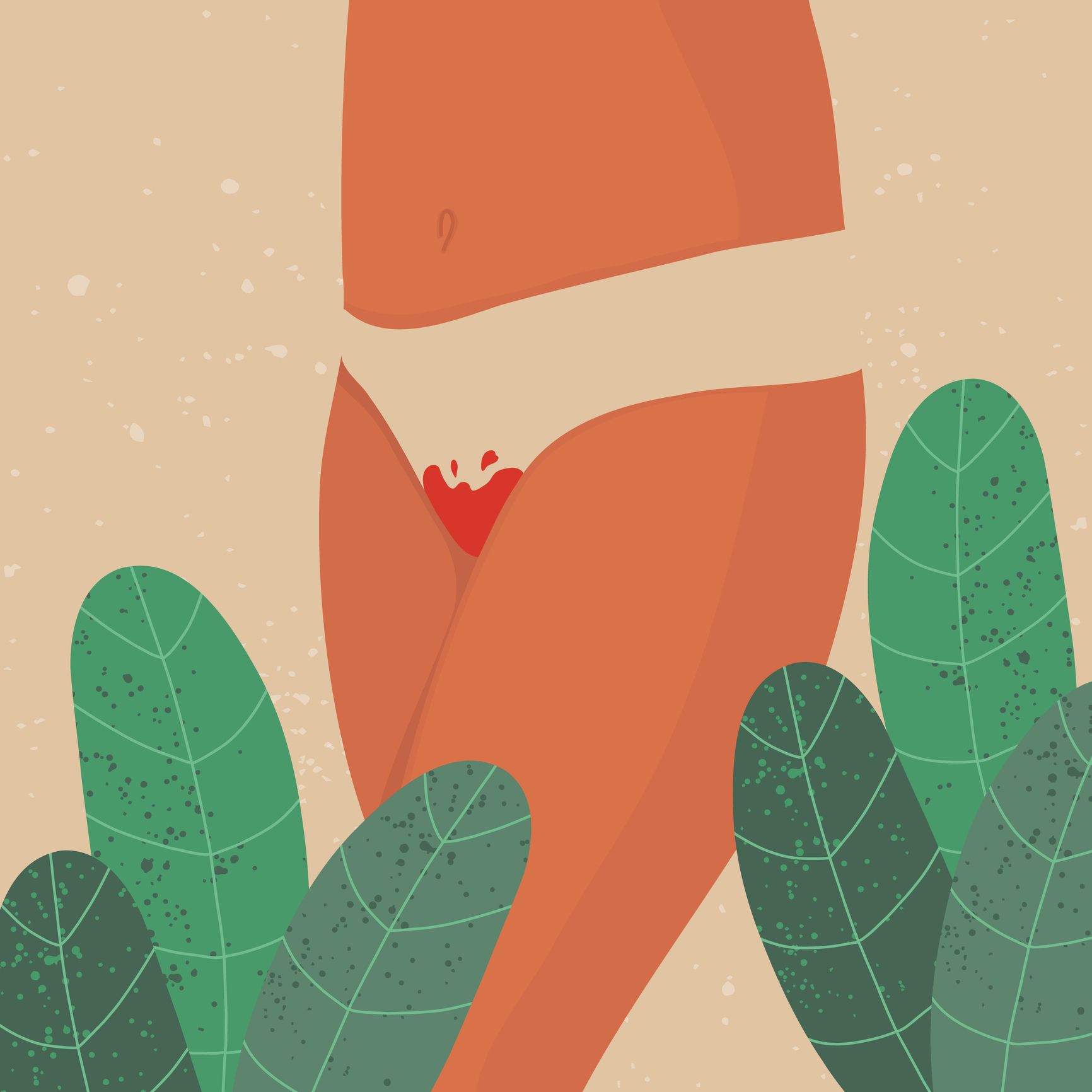
Both Nahla and Beth have been asked on many occasions if they worry about sharks when swimming in the ocean on their periods.
“Sharks eat fish. While they can smell blood (including menstrual blood) they aren’t attracted to it. The idea of sharks getting into a blood frenzy is a bit of a myth. The reason sharks attack is more often a case of mistaken identity - they think we’re a seal, in areas of low visibility,” Beth explains.
“I lived in Hawaii for a few years and there was nobody who ever got attacked while swimming on their period - nobody ever even thought about it,” she adds.
Neither Beth nor Nahla are remotely worried about sharks, even though they both free bleed when they’re in the ocean. For Beth, the predominant reason for doing so is pain management.
I free bleed and it's amazing. It's very liberating, it's comfortable, it feels very natural...
“I can’t use a tampon on long swims. When you do front crawl your tampon becomes full of water - so engorged it feels solid, which is incredibly painful,” she explains.
Both women use menstrual cups for short periods in water, but after a certain amount of time, it fills up with water.
“When you get out of the water, the gravity and the pressure sends it sluicing down your legs. It’s actually much less likely you’ll spill on yourself like that when you’re free bleeding,” Beth says.
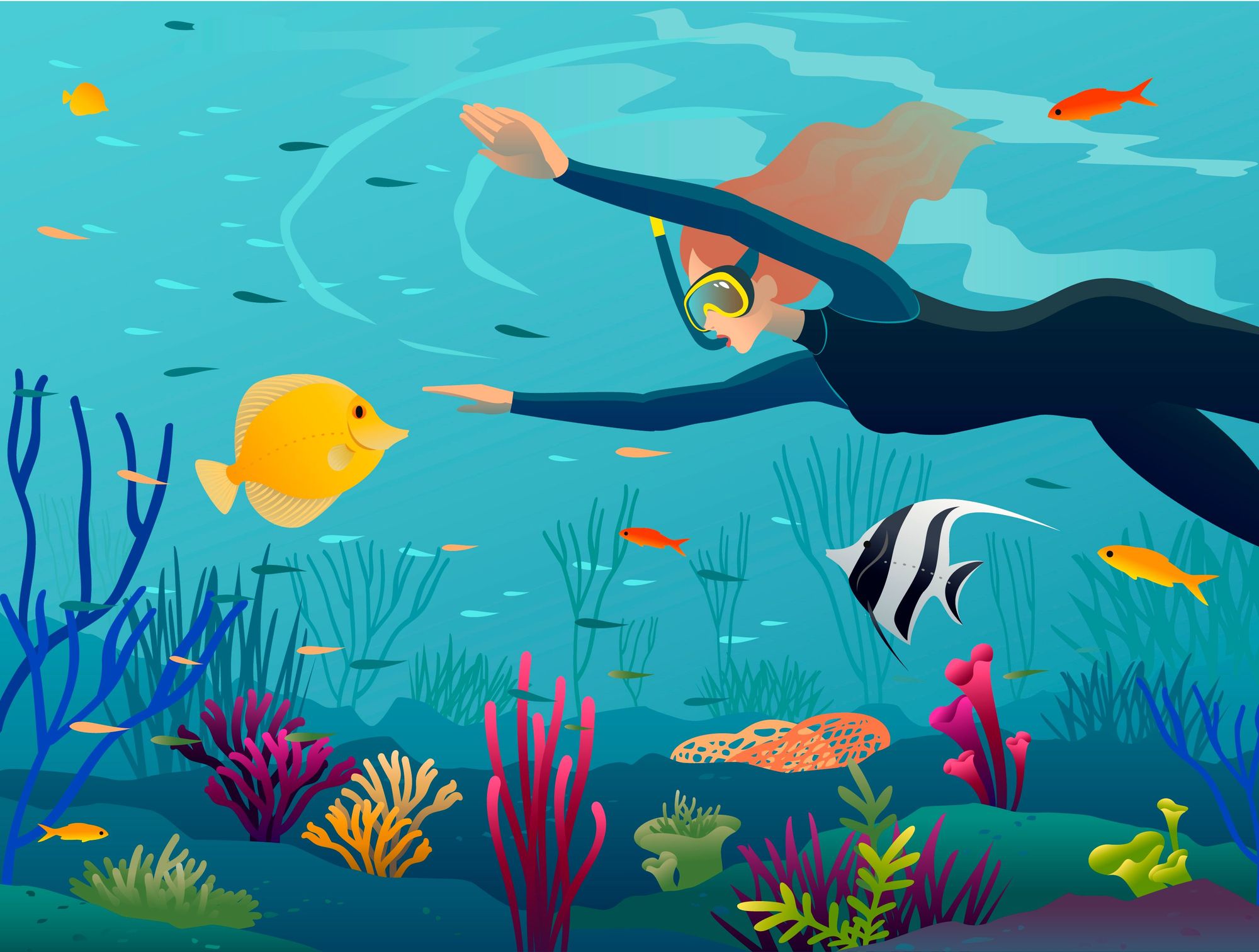
Nahla is also loathe to use the cup while diving.
“We don't have any research on what products work in very high pressures - is wearing a cup going to work 40 metres underwater?” she asks.
“So I free bleed and it's amazing. It's very liberating, it's comfortable, it feels very natural. It puts things into perspective - we're on this amazing planet surrounded by amazing beings, in millions of litres of water, and we’re worried about a few drops of blood,” she adds.
Becoming More Period Positive
Nahla, Beth and Sarah have all encountered challenges when adventuring on their periods.
“Once my Mooncup was so uncomfortable during a long swim that I had to take it out and hand it to the support crew member on the boat. It’s something we just had to deal with,” Beth says.
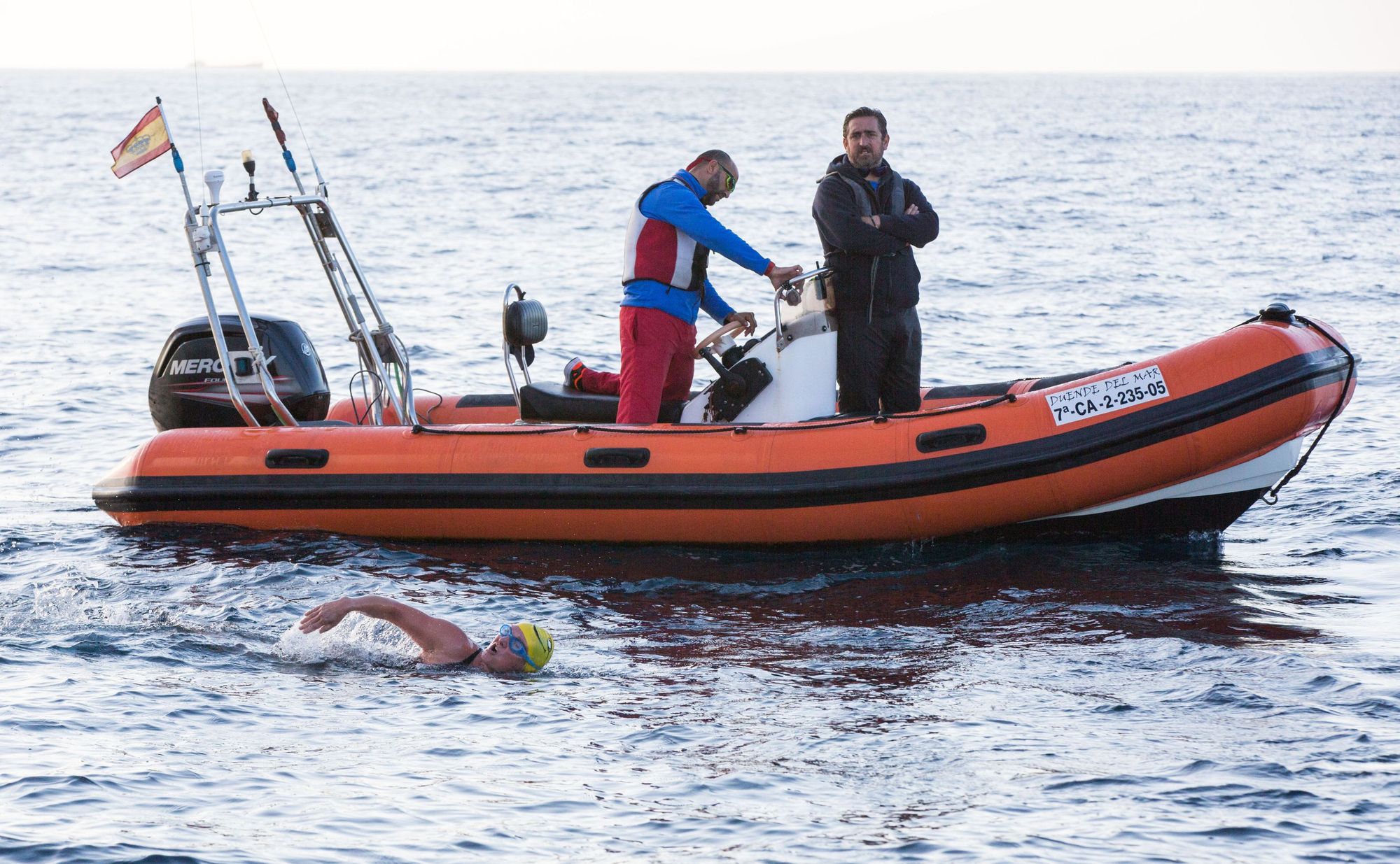
For Nahla, who spends many days at sea with male divers, the facilities are less than inadequate.
“There are extremely tiny toilets onboard - I don't think they're designed for women at all. In general, being away from land and facilities, I have to think a little bit about how I'm going to manage my period,” she says.
I don't think the men I've dived with have any prejudice against periods, I just think some of them are not exposed to it. It's partially their responsibility to do a bit of homework.
In such a male-dominated industry, it’s important to have an open and honest conversation about periods that everyone can get involved in. When Nahla read the diving curriculum, she noticed only one short paragraph on menstruation.
“I don't think the men I've dived with have any prejudice against periods, I just think some of them are not exposed to it. However, as dive masters they will be leading and teaching women, so it's partially their responsibility to do a bit of homework,” Nahla explains.
However inconvenient their periods, Nahla, Sarah and Beth don’t let them get in the way of an adventure. For Nahla, using the cup has unlocked a whole world of activity. She also believes that frank conversations can help affect a paradigm shift.
Adventure allowed me to fall in love with my body and what it can do. The physical activity has helped my periods become much more manageable
“In general, shifting the conversation from ‘how can we manage how difficult periods are?’ to ‘what activities can we do when we're on our periods?’ helps us embrace adventuring at that time of the month,” she explains.
Meanwhile, for Beth, adventuring on her period has been transformative.
“My pain and hormonal problems actually led to me getting body dysmorphia as a teenager. But adventure allowed me to fall in love with my body and what it can do. The physical activity has helped my periods become much more manageable,” she says.
Inspired? Then why not check out our adventure holidays - there are plenty of period-friendly options!


